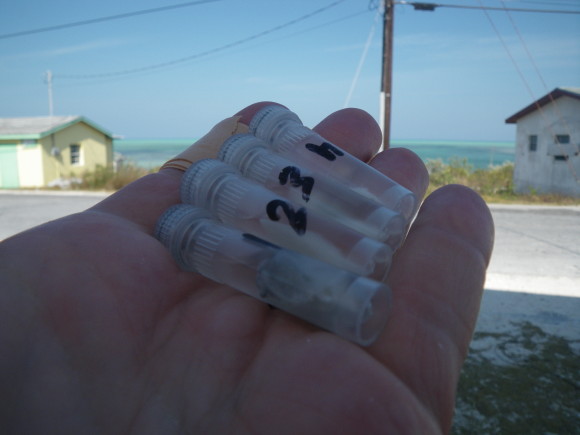
A few Androsian fin clips from 2011
Before you can draft laws to protect some type of fish or environment, you need to understand that fish or environment. If you have built a solid scientific understanding of the thing then you can build regulations that work in the long-run.
That’s exactly what the Bonefish & Tarpon Trust has been working to do in the Bahamas. Their Bahamas Initiative has added significantly to the understanding of bonefish, where they live and what they need to survive and thrive.
Instead of looking at what BTT has done and using that science as the basis for reasonable regulation and protection of the Flats and the fish and fisherman who depend on them, the current proposal from the Bahamas Fly Fishing Industry Association seems to go out of its way to dismiss what BTT has already accomplished, even going so far as to cast doubt on the validity of their work.
Excerpts from the BFFIA Proposal:
“This will also assist with more accurate surveys and statistics as to the percentages of Guided and Unguided Anglers frequenting our Country’s Flats and not rely on secondhand surveys or information from Non-Bahamian Entities’ Reports.” BFFIA Recommendations
“It is recommended that all mangrove, flats and reef research should be done through The College of the Bahamas in consultation and in conjunction with BFFIA. BFFIA suggests that 40% of the Fishing License Proceeds go to conservation and that a Board Member of BFFIA be appointed as Board Representative on the Government Conservation Fund Committee.” BFFIA Recommendations
For me, and I’d bet for almost everyone reading this, this stance is just further proof of the xenophobic nature of the proposals put forward by the Prescott Gang.
Man, I hope someone in the Cabinet gets the memo.
Tags: Bahamas, Regulations


The key of course will be to have US fly fishers completely avoid fishing in the Bahamas if the more onerous provisions are passed. The License requirement is valid, the rest, not so much.
If this passes, don’t go. The rules will then change pretty quickly.